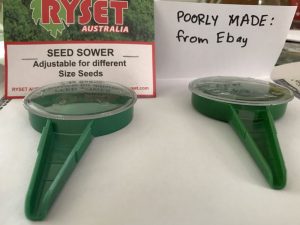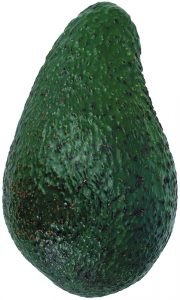Thanks to all the people who have contributed to this week’s newsletter: Amanda Healy, Angelo Eliades, Barb Whiter, Heather Miller, Heather Stanley, Jen Willis, Jules Jay, Natalie Nigol, Prue Clark and Stuart Rodda.
Farmers’ market news
What farmers’ markets will be happening this weekend?
On Saturday: Abbotsford Convent (re-located to Carlton) and Coburg. Not Wonga Park.
On Sunday: Alphington and Eltham.
Melbourne Farmers Markets
Prue Clark, from Melbourne Farmers Markets, has written in with the details of their planned markets from now until 10th January:
- The Abbotsford Convent market on Saturday, 28th November will be re-located to Carlton.
- The Carlton market on Saturday, 5th December will take place as normal.
- The Collingwood Childrens Farm market on Saturday, 12th December will be re-located to Carlton.
- Coburg will continue to be every Saturday, except there won’t be markets on 26th December and 2nd January. In lieu, there will be an extra Christmas market on Wednesday, 23rd December, 2-6pm.
- Alphington will continue to be every Sunday, except there won’t be markets on 27th December and 3rd January. In lieu, there will be an extra Christmas market on Wednesday, 23rd December, 2-6pm.
Community gardening news
Some, but seemingly not yet many, community gardens have now re-started their normal get togethers. For example, the Links Community Garden Lalor meetup will take place on Saturday (i.e. 28th November).
Two new community gardens are currently being developed in Darebin:
- Regent Community Garden – behind the Regent Centre, 4 Robinson Road, Reservoir.
- Croxton Community Garden – at the old tennis courts near Croxton Station, Thornbury.
If you would potentially like to get involved with either of these gardens, contact Natalie Nigol from Darebin Council by email.
Other re-starting and re-opening news
Many of the local food swaps are now re-starting. For example, the swaps on Saturday (i.e. 28th November) will include Heathmont, Heidelberg and Preston/Thornbury.
St Andrews Market has re-opened.
Edendale Farm has re-opened.
Yes, you did know!
Tree damage
Last week Mary Shiel asked what was causing the damage to her tulip tree. Heather Stanley and Jules Jay both agree that it is feral deer rubbing their antlers on the tree. Heather adds: “Arborist here. It’s distressing (for both you and the tree!) but not necessarily a death sentence for the tree. Keep your tree mulched, water it on hot days and give it a monthly dose of seasol. The wound will gradually seal over as the tree continues to grow, don’t paint it or put anything on the exposed tissues. Consult an arborist if you notice any insect activity or weeping from the wound.”
Whitefly and thrip infestation
A couple of weeks ago, Louise Nolan asked how she could get rid of her plague of whitefly and thrips.
Angelo Eliades: “Whitefly and thrips can be controlled with horticultural oils such as eco-oil or neem oil sprays, but it’s better to let predatory mites do the job. These beneficials thrive in mulch layers above soil, so it’s important to keep the soil mulched to give them a home. Also, don’t dig up every bit of soil, as this destroys their habitat and kills them (and all the other soil biota too).”
Heather Miller: “In a spray bottle, mix together, 1 litre of warm water, 1 tablespoon of molasses and 1 squirt of dish detergent (preferably organic). Mix and spray over the affected plants, making sure to spray on both sides.”
Newsletter reader growing tip: seed dispensers – follow up
 Following his article last week, Stuart Rodda has written in to say that he has now purchased seed dispensers from a variety of online suppliers and that the quality of these dispensers has varied greatly. He has now settled on the Ryset mini seeder GD736 which can be purchased from either The Seed Collection or Aussie Gardener.
Following his article last week, Stuart Rodda has written in to say that he has now purchased seed dispensers from a variety of online suppliers and that the quality of these dispensers has varied greatly. He has now settled on the Ryset mini seeder GD736 which can be purchased from either The Seed Collection or Aussie Gardener.
In the photo right, Stuart has tried to illustrate the difference between the good fitting Ryset dispensers and their ill-fitting Ebay competitors (where there is a gap between the green base and the clear swivelling top).
Cafes who give away spent coffee grounds
Barb Whiter has written in to say that the Black Vice Cafe & Roastery in Hurstbridge (946 Heidelberg-Kinglake Road) sometimes gives away its spent coffee grounds – ring in advance (9718 1386). This means that there are now 26 cafes on our list who give away spent coffee grounds. Anyone know of any others? Email me.
Want any jars for seed-saving or jam?
Bronwen Whyatt has lots of spare jars that she would like to give away, mostly Vegemite jars with screw top lids. She lives in Northcote and is happy to drop them off within a 10km radius. If interest, email me and I’ll put you in contact with Bronwen.
Eltham and District 2020 Amateur Wine Show results
The results of the 2020 Eltham and District Amateur Wine Show have just been published. For Covid-19 reasons, it was a virtual event rather than the usual get together. There were 421 entries across the various categories, of which 239 were awarded medals. Two of the entries received a perfect score of 20/20 (the 2020 Lagrein’s of Mario Fantin & John O Callaghan and Danny Cappellani). The Joe Illian award for best previous vintage chardonnay also went to Danny Cappellani. Why not enter next year’s wine show in November 2021?
The case for growing your own avocados (by Robin Gale-Baker)
 Have you ever considered that when you buy an avocado you could be supporting a Mexican criminal cartel or supporting water rights in Chile that are resulting in thousands of small farmers being effectively deprived of their livelihoods?
Have you ever considered that when you buy an avocado you could be supporting a Mexican criminal cartel or supporting water rights in Chile that are resulting in thousands of small farmers being effectively deprived of their livelihoods?
Mexico is the biggest producer of avocados in the world, having a perfect climate for production. The industry has, however, apparently been controlled by cartels since the late 1990s. Avocados have become a new conflict commodity, much like conflict diamonds, as cartels illegally log, clear land and murder small farmers.
Chile is the 14th largest producer of avocados in the world. Chilean economists in 1981 adopted an ‘American’ water rights system (much like the Australian one) that has left smaller farmers asking the world to stop buying Chilean avocados. These farmers are not getting a water allocation at all and, not only are they going broke, but they are also unable to use their land for anything else.
What better argument could there be for purchasing local food or growing your own?
Avocados are tropical trees which do well in warm, humid climates with little temperature variation. Sudden drops in temperature and frosts are very damaging to the fruit.
There are, however, varieties that can grow in temperate zones such as ours. Wurtz ‘A’ Type is one. This grafted ‘dwarf’ grows to 4 metres in height and 6 metres in width. It has a weeping habit, medium sized fruit and can be pruned down to 2 metres. It flowers and fruits from November to February but takes at least 3 years to produce. It is partially self-fertile but will fruit better if a type B cultivar is planted nearby (e.g. Bacon, Fuerte or Sharwill).
[Editor’s note: when an avocado flower blooms, it does so with either its female reproductive parts available or its male reproductive parts available, but not both. With the Type A varieties, the female parts tend to be available in the mornings, with the male parts then becoming available in the afternoons (with the female parts becoming unavailable). With Type B varieties, it is the other way round. This process is ‘designed’ to hinder self-fertilisation.]
Wurtz can be grown in a large pot (75-100 litres). This is often a good way to grow an avocado as it means that in winter, when the tree needs protection from frost, it can be moved to a sheltered spot. Alternatively, build a semicircular mud brick wall around it and the thermal mass of the mud brick will keep it free from frost damage.
Avocados are shallow rooted and have a weak root system. They are best grown on a large mound or a slope as they need to be well drained. They also need plenty of water (it takes about 68 litres of water to produce one avocado in tropical climates, a bit less in temperate ones). They are easily stressed by dryness, windburn or sunburn and (unusually) like being watered in the middle of the day. Trunks can be protected from sunburn with whitewash. Stake the tree to prevent breakage or loosening from the soil in wind.
On our clay soils, it is best to add gypsum, compost and well-rotted cow manure and some blood and bone to the soil, and build a high, wide mound. Then mulch it well to keep moisture in the mound but keep the mulch away from the trunk to prevent collar rot.
Avocados are climacteric, meaning that they ripen off the tree. Once an avocado has reached full size, twist it from the branch and let ripen it for 2 weeks. If it does not shrivel, then the fruit is ready and all can be harvested or some left on the tree for later use.
[Editor’s note: I have been trying to grow avocados for a number of years. For a young tree to survive, it needs protection during both the Winter and the Summer (I use shade cloth). I have never solved the problem of all the fruit dropping off the tree when still minuscule.]
Read more of Robin’s fruit tree growing guides on our website.
Make your own food bugs
 You can make either vegetable bugs or fruit bugs. In both cases, the animals that can be made are similar (e.g. snails, caterpillars, dragonflies and butterflies) but the materials are different (e.g. chive or apple antennae, tomato or grape heads).
You can make either vegetable bugs or fruit bugs. In both cases, the animals that can be made are similar (e.g. snails, caterpillars, dragonflies and butterflies) but the materials are different (e.g. chive or apple antennae, tomato or grape heads).
The first task is always to prepare the googly eyes but the method is different for the two different types of bug.
For the vegetable bugs, use a straw to cut out black olive pupils (alternatively, you can chop black olives into small pieces and use those for the pupils instead). Pipe small dots of cream cheese onto a plate and top with black olive pupils.
For the fruit bugs, pipe small dots of cream cheese onto a plate. Top with mini dairy-free chocolate chips.
Read the full recipes for the vegetable bugs and the fruit bugs on our website.
A recipe for saag paneer (Indian cheese in spinach sauce)
Courtesy of Jen Willis and Sustainable Macleod.
Ingredients
3 tablespoons ghee or vegetable oil
200-300g paneer (or, as a vegan alternative, firm tofu) cut into 2 cm cubes
2 tablespoons dried fenugreek leaves, optional
8-10 cups spinach leaves, washed (or use silverbeet or kale)
1 onion, diced
3 teaspoons fresh ginger, grated
3-5 garlic cloves, minced
1-2 teaspoons cumin seeds toasted or 1 teaspoon ground cumin
2 teaspoons coriander powder
½ teaspoon cayenne powder and/or 1 small fresh chilli (add more to your liking)
1 teaspoon turmeric powder
1 teaspoon garam masala
1 pinch of salt (optional)
½ cup of water
½ cup of natural yoghurt, coconut milk or cream
Paneer and fenugreek should be available in Indian and some other grocery shops.
Method
Add the spinach and the fenugreek leaves to a pan of boiling water. Cook for 2 minutes and drain.
Heat 1 tablespoon of the ghee in a wide pan over medium heat. Add the paneer and cook until golden (do in batches if the pan isn’t wide enough). Place the paneer on a paper towel. Leave the pan on the heat.
Add the remaining 2 tablespoons of ghee plus the onion, ginger, garlic and fresh chilli (if using). Sauté on medium heat until lightly browned (about 10 minutes), stirring often. Add a dash of water if sticking or starting to burn.
Add the other spices and sauté another 3 minutes. Again, add a dash of water if needed.
Chop finely or blend the greens. Add to the pan with the water. Simmer slowly for 5-10 minutes with the lid off.
If using yoghurt or cream, turn off the heat and stir in slowly to prevent curdling. If using coconut milk, there’s no need to turn the heat off.
Add the paneer. Simmer to heat through. Taste and add salt if needed.
Serve with rice and a squeeze of lemon.
What seeds to plant in December
Here is a list (see the planting guide for more detail):
Warm season veggiesBeans |
Leafy greensLettuce |
RootsBeetroot |
PerennialsAsparagus |
December is not a very good planting month: arguably too late for many summer veggies and, although you can plant leafy greens such as lettuce and mustard greens, they are likely to go to seed pretty quickly.
Which link was clicked most times in the last newsletter?
The most popular link was VEG’s (Very Edible Gardens) customisable wicking bed kits.
Proverb of the month
Spill the beans. Meaning: to tell something that someone else wanted you to keep a secret. The first uses of this phrase are from the USA in the early 20th Century (not from ancient Greece, as some websites say). The first references related to horse racing and meant ‘to cause an upset’; it then became more mainstream a few years later and took on its current meaning. The key word is ‘spill’ rather than ‘beans’, as illustrated by the existence the alternative form spill the soup. One of the meanings of ‘spill’ since at least the 16th Century is ‘to divulge’.
Read more food-related proverbs.
Gardening quote of the month
“Flowers are happy things.” by P.G. Wodehouse.
Joke (or pun) of the week
Dijon vu – the same mustard as before.
Upcoming online events
If you know of any events other than those listed below, email me.
Newly announced events
Sowing seeds of resilience in the suburbs: Sunday, 29th November, 3-4.30pm; free; organised by Transition Darebin. Read more and book on Humanitix.
Darebin Sustainable Food Leaders Forum 2020: Thursday, 10th December, 6-7.30pm; free; organised by Darebin Council. Read more and book on Humanitix.
Previously announced events
Sourdough bread making: Saturday, 28th November, 11am-midday; $20; organised by Living & Learning Nillumbik. Read more and book on their website.
Sustainable home & kitchen: Saturday, 28th November, 2-3pm; free; organised by Central Ringwood Community Centre. Read more and book on Facebook.
Sourdough bread making: Sunday, 29th November, 3-4pm; $20; organised by Living & Learning Nillumbik. Read more and book on their website.
Closing the food loop: Tuesday, 1st December, 7-8pm; $12; organised by Reground. Read more and book on EventBrite.
Vermont Farm to Plate plan from 2009 to 2020 and beyond: Wednesday, 2nd December, 11am-1pm; $22; organised by Sustain. Read more and book on Humanitix.
Expanding the food loop: Tuesday, 8th December, 7-8pm; $12; organised by Reground. Read more and book on EventBrite.
Planning for sustainable farming and healthy food access: Wednesday, 9th December, 11am-1pm; $22; organised by Sustain. Read more and book on Humanitix.
Home harvest workshop: Wednesday, 9th December, 7-8.30pm; free; organised by Whitehorse Council. Read more and book on EventBrite.
How the public purse can drive food systems change: Wednesday, 16th December, 11am-1pm; $22; organised by Sustain. Read more and book on Humanitix.
All The Dirt is a weekly podcast about gardening.
